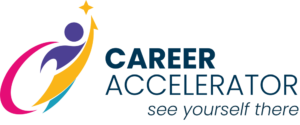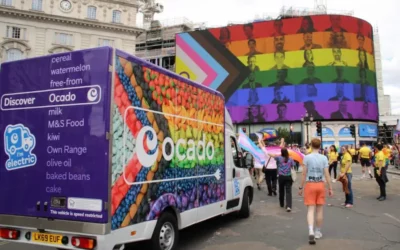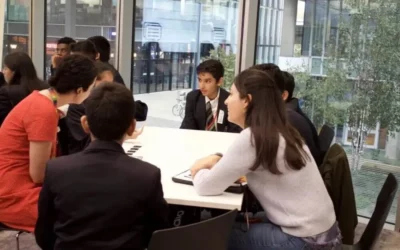It’s recognised that having a diverse workforce is good for business. Diverse and inclusive companies enjoy a competitive advantage, better employee performance and engagement. To innovate and develop products and services that people want, businesses need staff with different viewpoints and perspectives to reflect society at large.
A recent report by the Chartered Institute of Personnel and Development on equality, diversity and inclusion (DE&I) in the workplace highlighted that the main business benefits of taking DE&I seriously are talent and corporate reputation. People want to work for employers with good employment practices and to feel valued at work; and customers want to buy goods and services from organisations that are more diverse and inclusive.
The report states openness to diversity widens access to the best talent. Inclusion allows engagement with talent effectively. Equality enables the delivery of fair outcomes. Together, this leads to enhanced innovation, creativity, productivity, reputation, engagement and business results.
Diversity is high on the agenda for Government too. New Financial Conduct Authority (FCA) rules come into force this year for companies listed on the London Stock Exchange who will have to show that they are meeting gender and ethnic diversity targets – or explain why they are falling behind. But despite growing awareness of the need to do more to advance better diversity progress can be slow.
Through our work with schools and businesses, we’ve found that there is a gap around neurodiversity and disability support for young people, which if improved could start to make a real difference to workplace diversity. Not all young neurodiverse and disabled people are getting equal opportunities to thrive in their education and career journeys. This is leading to companies missing out on talent.
It’s estimated that around 1 in 7 people (more than 15% of people in the UK) are neurodivergent, and there are 14.6 million disabled people in the UK, 9% are children and 21% are working-age adults. Both groups continue to be unrepresented in career opportunities in general. The employment rate of disabled people is 53%, compared to 82% of non-disabled people. For people with severe or specific learning difficulties, the rate is even lower at 27%, and for autistic individuals, it is lower yet at 22%.
We are trying to address this with our new ‘Neurodiversity and Disability’ programme which connects neurodiverse students with businesses to provide mentoring and work experience opportunities, with the aim of building more diverse talent pipelines and supporting young people aged 14-25 with special educational needs and disabilities (SEND).
The programme has already been adopted by companies such as Centrica and Pearson, and has helped their staff expand their skills and awareness of how to work with neurodiverse individuals while offering students who are neurodivergent the chance to prepare for professional careers.
Firms taking steps to address the diversity gap
Centrica’s “Diverse-ability” network is dedicated to supporting employees who are disabled or neurodivergent. They plan to offer a “workplace adjustment passport” to these employees, allowing them to work in a way that maximizes their potential and is fully supported by the company.
They took part in our three-month mentoring programme with students from the Tower School in Essex, which provides specialised education for young people with autism and associated conditions, and plan to run the programme twice this year.
Pearson set up a dedicated Neurodiversity workstream with its Disability employee resource group, and over a three-month period, its employees also mentored students who are neurodivergent to help them learn about business and prepare them for their future careers. The mentees were assigned to Pearson mentors who were also neurodivergent or highly experienced in neurodiversity.
Kevin Lyons, Senior HR Manager at Pearson said that as an employer committed to neurodiversity inclusion, the ‘neurodiversity and disability’ programme is important for their inclusion strategy. They aim to create an environment that is welcoming to neurodivergent individuals and established a dedicated workstream for this purpose.
They are working on their recruitment process as well to ensure that neurodivergent candidates feel encouraged to apply and have trailed changes such as providing questions in advance to support those who are neurodivergent.
All Pearson employees who are neurodivergent can also obtain a formal diagnosis of neurodiversity through a partnership with Health Partners and Lexxic, which can support adjustments at work, and they are also rolling out education and awareness on neurodiversity to managers and employees.
The majority of employees taking part in our programme found acting as a mentor a meaningful volunteering opportunity. For example, Havana Abid from Pearson said it was a great way to connect with students and was really meaningful as he could share his own expertise, knowledge and share experiences with students who found the conversations helpful. He added it was a good way to give back.
Students that took part said it helped them learn about career opportunities or options for the future, increase their confidence and self-awareness and build interpersonal skills.
Students also gained practical help writing CVs, cover letters and learning interview techniques.
By embracing neurodiversity, and taking part in programmes that connect businesses with neurodiverse young people companies are not only helping to open doors for people, but they are also attracting and retaining a diverse neuro-inclusive workforce, which helps foster a culture where everyone can thrive. This is a win-win for everyone.




